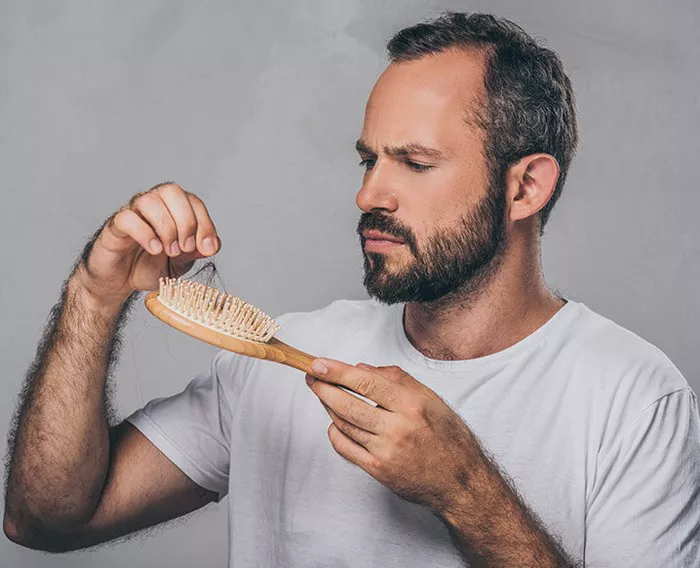Lupus is a chronic autoimmune disease that can cause inflammation and damage to various body systems, including the skin. One of the distressing symptoms for many patients is hair loss. This article provides a comprehensive guide on understanding, managing, and mitigating hair loss due to lupus, offering both medical insights and practical tips.
What is Lupus?
Lupus, or Systemic Lupus Erythematosus (SLE), is an autoimmune disorder where the immune system mistakenly attacks healthy tissues, causing widespread inflammation and damage. Lupus can affect joints, skin, kidneys, blood cells, brain, heart, and lungs.
Hair Loss and Lupus
Hair loss in lupus patients can occur due to several reasons:
1. Inflammation: The immune system’s attack on hair follicles can cause hair to fall out.
2. Medications: Treatments for lupus, including corticosteroids and immunosuppressants, can contribute to hair loss.
3. Scarring: Discoid lupus, a chronic inflammatory condition affecting the skin, can lead to scarring and permanent hair loss if not treated promptly.
Understanding the underlying cause is crucial in determining the appropriate strategy to combat hair loss.
Diagnosing Lupus-Related Hair Loss
1. Medical History and Physical Examination
A thorough medical history and physical examination can help identify the pattern and extent of hair loss. This includes checking for lupus-specific symptoms such as skin rashes, joint pain, and fatigue.
2. Laboratory Tests
Blood tests can help diagnose lupus by checking for specific antibodies, such as antinuclear antibodies (ANA), anti-dsDNA, and anti-Smith antibodies, which are commonly present in lupus patients.
3. Scalp Biopsy
A scalp biopsy can be performed to distinguish between scarring (cicatricial) and non-scarring alopecia. This involves taking a small sample of scalp tissue for microscopic examination.
Medical Treatments for Hair Loss Due to Lupus
1. Medications
Managing lupus and its symptoms is the first step in reducing hair loss. Common medications include:
Corticosteroids: These reduce inflammation and immune system activity.
Antimalarials: Hydroxychloroquine is commonly used to control lupus symptoms.
Immunosuppressants: Drugs like methotrexate and azathioprine can help control severe lupus.
2. Topical Treatments
Topical Steroids: Applied directly to the scalp to reduce inflammation.
Minoxidil: Promotes hair growth and slows hair loss.
See Also: How to Stop Hair Fall for Oily Scalp: Things You Need To Know
3. Platelet-Rich Plasma (PRP) Therapy
PRP involves injecting concentrated platelets from the patient’s blood into the scalp, which can stimulate hair growth and improve follicle health.
4. Hair Transplant Surgery
In cases of permanent hair loss due to scarring, hair transplant surgery may be considered. This involves transferring hair follicles from a healthy part of the scalp to the affected area.
Lifestyle and Home Remedies
1. Healthy Diet
Eating a balanced diet rich in vitamins and minerals can support overall health and hair growth. Key nutrients include:
Iron: Essential for hair growth. Sources include red meat, spinach, and lentils.
Biotin: Supports hair health. Found in eggs, nuts, and seeds.
Vitamin D: Promotes hair follicle health. Sun exposure and fortified foods are good sources.
2. Gentle Hair Care
Avoid Harsh Treatments: Minimize the use of chemical treatments, heat styling, and tight hairstyles that can stress the hair.
Use Gentle Shampoos: Opt for sulfate-free, mild shampoos and conditioners that are less likely to irritate the scalp.
3. Stress Management
Stress can exacerbate lupus symptoms, including hair loss. Techniques such as yoga, meditation, and regular exercise can help manage stress levels.
4. Supplements
Omega-3 Fatty Acids: Found in fish oil, can reduce inflammation.
Vitamin E: Supports scalp health and hair growth.
Psychological Support
Hair loss can significantly impact self-esteem and emotional well-being. Seeking support from mental health professionals or joining support groups can provide emotional relief and coping strategies.
1. Counseling and Therapy
Cognitive Behavioral Therapy (CBT): Helps manage the psychological impact of hair loss.
Support Groups: Connecting with others facing similar challenges can be reassuring and offer practical advice.
2. Wigs and Hairpieces
Investing in a high-quality wig or hairpiece can be a temporary solution while addressing the underlying cause of hair loss.
Preventive Measures
1. Regular Check-ups
Frequent visits to a healthcare provider can help monitor lupus activity and adjust treatments as needed.
2. Sun Protection
Lupus patients are often photosensitive. Using sunscreen and wearing protective clothing can prevent skin flares that contribute to hair loss.
3. Medication Management
Adhering to prescribed treatments and promptly reporting side effects to healthcare providers can minimize medication-induced hair loss.
Alternative and Complementary Therapies
1. Herbal Remedies
Some patients find relief using herbal treatments like aloe vera, rosemary oil, and green tea, which can promote scalp health and hair growth.
2. Acupuncture
Acupuncture has been explored for its potential to reduce lupus symptoms and improve hair health by enhancing blood circulation to the scalp.
3. Massage Therapy
Scalp massages can improve blood flow to hair follicles, potentially stimulating hair growth.
Conclusion
Hair loss due to lupus can be challenging, but a combination of medical treatments, lifestyle changes, and psychological support can help manage and mitigate its effects. Early diagnosis and intervention are crucial in preventing permanent hair loss and maintaining quality of life for lupus patients. Always consult with healthcare providers to tailor a treatment plan to individual needs and circumstances.


